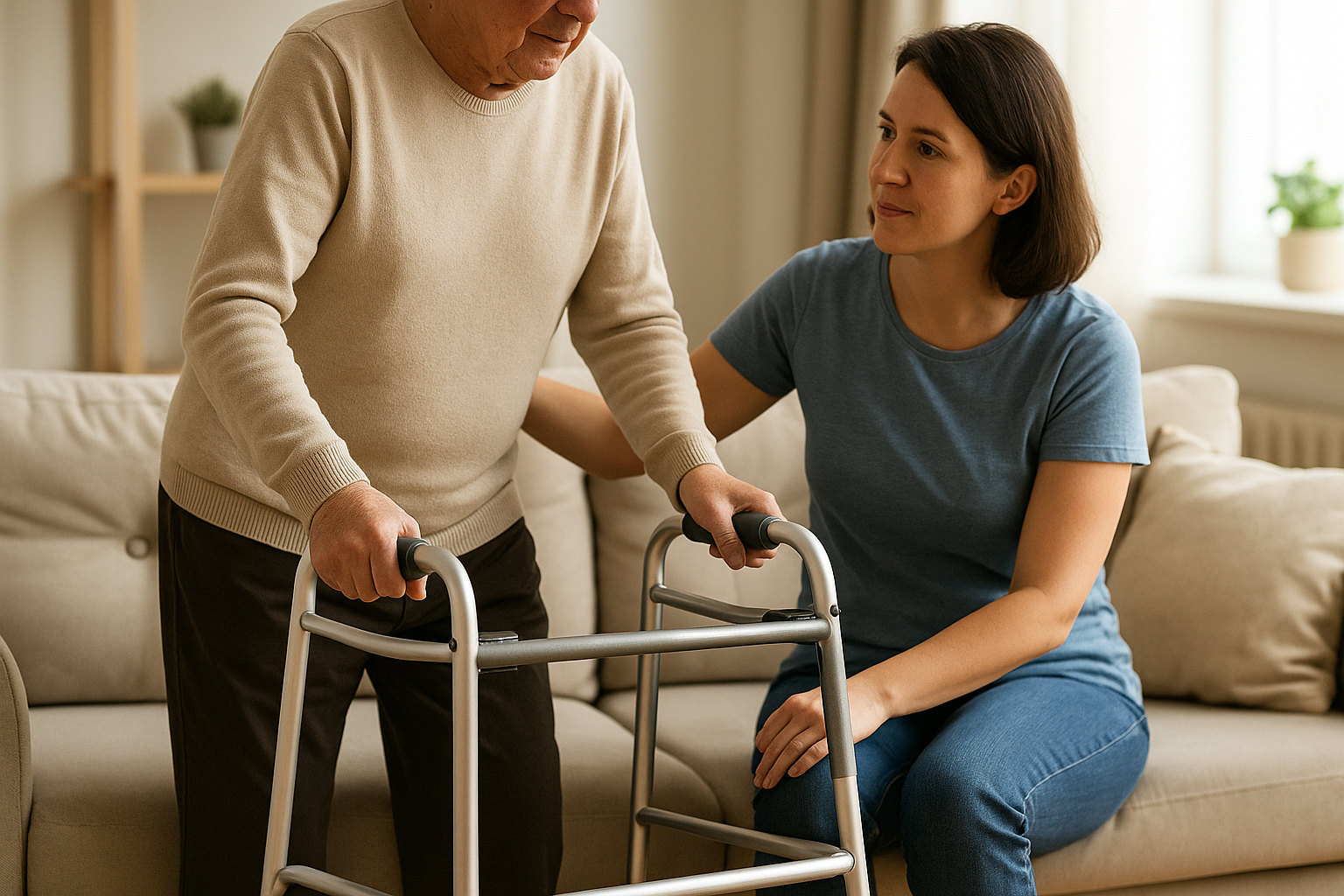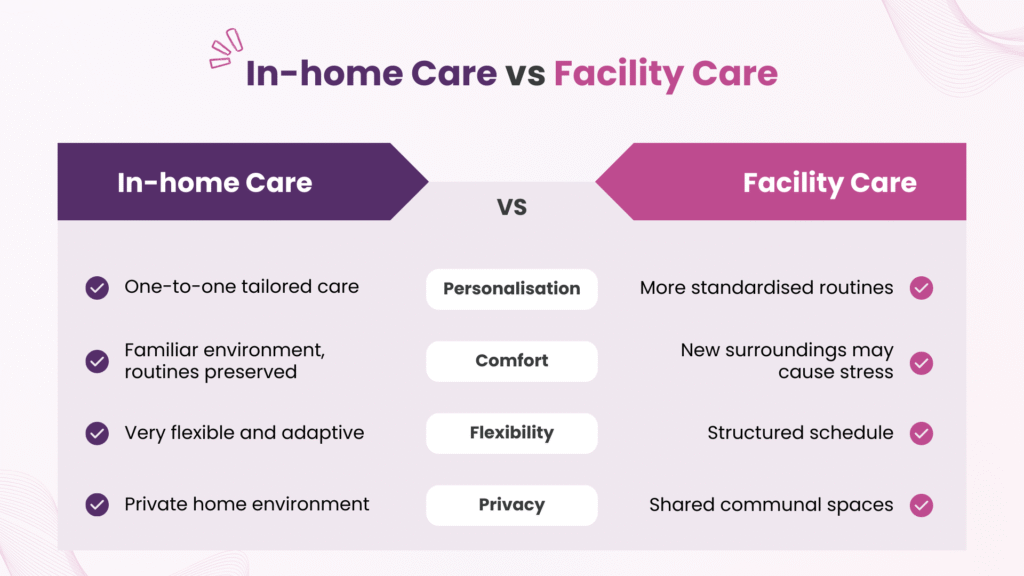When a loved one is discharged from hospital, especially after surgery or illness, the transition home can be both emotional and risky. Many families feel unsure about how to keep their parent safe while they recover — especially if they’re not able to provide 24/7 support themselves.
This is where in-home respite care becomes a powerful tool — offering short-term support from professional carers, right in the comfort of home.
In this guide, we’ll walk you through how respite care works after a hospital stay, and how it helps your loved one recover safely and comfortably.

Why the Transition from Hospital to Home Matters
Hospital discharges often happen quickly — sometimes with only a day or two’s notice. Families are expected to provide ongoing care, medication management, mobility support, and even help with personal hygiene, all while balancing their own work and responsibilities.
But post-discharge recovery is a critical window. Studies show that:
- 1 in 5 elderly people are re-admitted to hospital within 30 days of discharge (Ministry of Health NZ).
- Poor discharge planning and lack of home support can increase risks of falls, medication errors, and isolation.
This is where Home Carers’ respite support can make a real difference.
What Is Respite Care After Hospital Discharge?

Respite care provides temporary, flexible in-home support, allowing your loved one to rest, recover, and regain independence safely.
It includes:
- Personal care (toileting, bathing, dressing)
- Meal preparation and hydration
- Medication reminders
- Companionship and emotional support
- Mobility and transfer assistance
- Light housekeeping and errands
And unlike many other services, we can start with short notice, sometimes within 24–48 hours.
How to Organise Respite Care After Discharge
Here’s a simple step-by-step guide:
- Ask for a discharge plan from the hospital, including any mobility or care notes.
- Contact Home Carers on 0800 227 686 or through our online contact form to discuss your situation.
- We’ll arrange a free in-home assessment to understand your loved one’s needs.
- A matched carer will begin support — whether it’s morning help, overnight supervision, or a few hours per day.
Bonus Tip: If you’re travelling or unavailable, we can provide support in your absence too.
Real Example: Supporting John After Hip Surgery
After being discharged from Christchurch Hospital following hip replacement surgery, John wasn’t confident walking around his home — and his daughter, Sarah, lived in Wellington.
We arranged for a carer to support John with personal care, exercises from the physio, and meal prep for 2 weeks. With daily care and gentle encouragement, John gained strength, confidence, and avoided re-hospitalisation.
Why Families Choose Home Carers for Post-Hospital Respite
Unlike large facilities or complex bookings, we offer:
- Care in your own home — no need to move.
- Flexible hours — mornings, evenings, overnight, or day-time visits.
- Fast turnaround — we often start within days.
- Experienced carers with hospital discharge support training.
- Personalised matching with carers who understand your loved one’s needs.
- Even after the initial recovery period, our regular Wellness Checks can help monitor your loved one’s health and prevent complications before they escalate.
Ready to Help Mum or Dad Recover Safely?
You don’t have to do this alone.
Let our team support your loved one’s recovery with experienced, kind, and flexible respite care.
👉 Call 0800 227 686 or book a callback here.
Let’s make the return home feel safe and supported.
